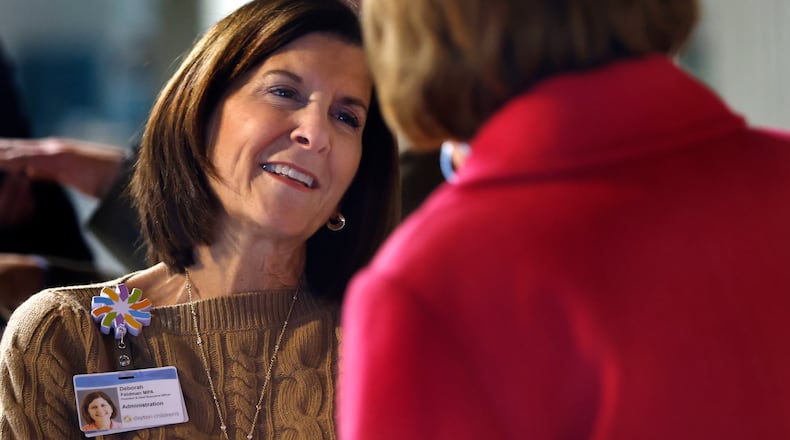As part of their medical education, all Wright State medical students complete their required pediatric rotations at Dayton Children’s.
“We recognize that, as two of the region’s critical organizations, we can do so much more together to grow and strengthen the pediatric-focused workforce, improve access to medical and mental health services for our children and focus research on moving the needle on health outcomes,” said Debbie Feldman, president and CEO of Dayton Children’s.
Wright State is committed to training the next generation of physicians, said Sue Edwards, president of Wright State.
“Our expanded partnership with Dayton Children’s Hospital marks a transformative step — enhancing clinical training opportunities for our medical students and residents while improving access to high-quality pediatric care," Edwards said.
The goals of this expanded partnership include:
- Growing and developing the clinical workforce by increasing the number of primary care pediatricians, building additional clinical workforce training capacity and upskilling in-career clinicians.
- Increasing research focused on regional children’s health priorities, including maternal health and infant mortality, chronic disease and mental health.
- Expanding services in underserved areas with focus on primary care deserts.
Feldman said at this point, there would not be more residency slots but the hospital would like that to happen, depending on federal funding.
She said that many of the people who want to go into pediatrics, whether that is in social work, mental health care or nursing, face significant school and program costs.
“So we’re looking forward to seeing how we can expand the support for students that want to go into these programs,” Feldman said.
There are already hundreds of students learning at Dayton Children’s every day, Feldman said.
“This partnership strengthens our shared mission to advance medical education, improve patient care and fuel the region’s health care workforce,” Edwards said.
Dayton Children’s is working toward opening a pediatric clinic in west Dayton, recently receiving $8.5 million in federal new markets tax credits and $1 million in state new markets tax credits for its west Dayton urgent care.
Those funds are being allocated through the Dayton Region New Market Fund, an affiliate of the CityWide Development Corporation.
Feldman said the expanded partnership with Wright State would help communities like West Dayton where medical care is limited.
“Too many of our children are suffering from chronic disease, whether it’s asthma, diabetes, or other chronic diseases that, frankly, if not treated in childhood, will become lifelong health issues for our adults and frankly, tremendous drains on the health care system of our country,” Feldman said.
The pediatric clinic will offer after-hours pediatric services to the families in west Dayton, such as for on-demand care for acute illnesses, minor injuries and health care support, according to CityWide and Dayton Children’s.
The planned urgent care will be across the street from DeSoto Bass Courts at Germantown and McCall Streets in the Miami Chapel neighborhood. The 4.3-acre project site was formerly the NIBCO foundry, which ceased operations decades ago.
The two institutions also hope to make an impact on children’s health outcomes, which, according to WSU, currently show:
- Ohio consistently ranks in the bottom half of states on child health and well-being.
- Infant mortality rates are much higher in the Dayton region compared to the state rate.
- A significant number of children in the Dayton region are facing mental health challenges.
Feldman said firm details about research were not available but Dayton Children’s would like to see research done about improving chronic health problems for children.
In addition to working with the Boonshoft, Dayton Children’s and the United States Air Force share the nation’s only civilian-military integrated pediatric training program.
Dayton Children’s is an independent, freestanding children’s hospital, providing care for more than 400,000 children each year across 20 counties in Ohio and eastern Indiana. The hospital has two campuses, Dayton and Springboro, and more than 15 care sites including facilities in Troy, Beavercreek and Kettering.


